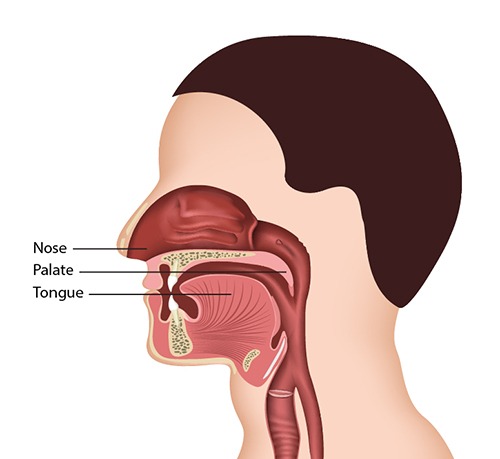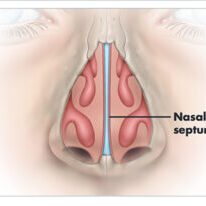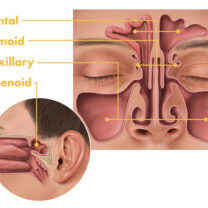How to Stop Snoring?
90 million Americans snore. Chances are the rest of us live with a snorer. Not to worry, there's hope and a solution for you or your partner's snoring!
Get to the Root of Why You Snore
According to a 2002 poll by The National Sleep Foundation, about 40% of adult men and 24% of adult women are habitual snorers. That’s a lot of us who are making a lot of noise in our sleep. For those of us who are not snoring, chances are we sleep with a partner who snores.
Understanding why you're snoring is the first step in treating snoring. Snoring can be caused by blockage in the airway, in the nose, or in the palate and the tongue. Sometimes it's a combination of more than one of these.
A proper snoring exam is the first step to stop snoring.
Risks if Snoring Goes Untreated
The problem with snoring isn’t just the noise and disruption to your partner. It’s also doing a number on your health. Over the last few years several common health issues are now attributed to snoring including:
- Heart Disease
- Sudden Death from Arrhythmia
- Daytime Tiredness
- Morning Headaches
- Lower Testosterone and Libido
- Reduced Immune System
- Dementia
- Fatigue
- Mental Fogginess
- Type 2 Diabetes
- Weight Gain
- Depression
- Death
Request a Snoring Appointment
Do you or your partner snore? If so, we can help. Please fill out the form below and we'll reach out to you to schedule an appointment.
What makes the snoring sound?
When you crawl into bed, get comfy and start to drift off to sleep, it's not just your brain that’s starting to relax. It's all your muscles, including those in your throat. When those muscles relax, your tongue falls back and your throat becomes more narrow. With every breath, in and out, the walls of your throat vibrate. This causes your classic, and sometimes humorous, snoring sound.
The narrower the airway, the greater the vibration and often the louder the sound. In some cases the air way completely collapses causing lapses in breath, this is known as sleep apnea.
How to Stop Snoring
If you or your partner snore, the best solution is to come in for a comprehensive exam to get to the root cause of your snoring. Snoring can be caused by blockage at any combination of three levels in the airway; the nose, the palate and the tongue. We can’t decipher the culprit without an exam, but here are a few other ways to help stop snoring.
- Get a proper exam to evaluate the cause of your snoring
- After your exam, Dr. Cilento will provide treatment options
- Sleep on your side instead of your back
- Avoid alcohol as it tends to relax the throat muscles
- Treat allergies
- Lose Weight
In office we have many solutions depending on what is causing your snoring. These could include oral appliances, injection snoreplasty, UPPP, Inspire Sleep Therapy, and tongue and throat procedures among others.









